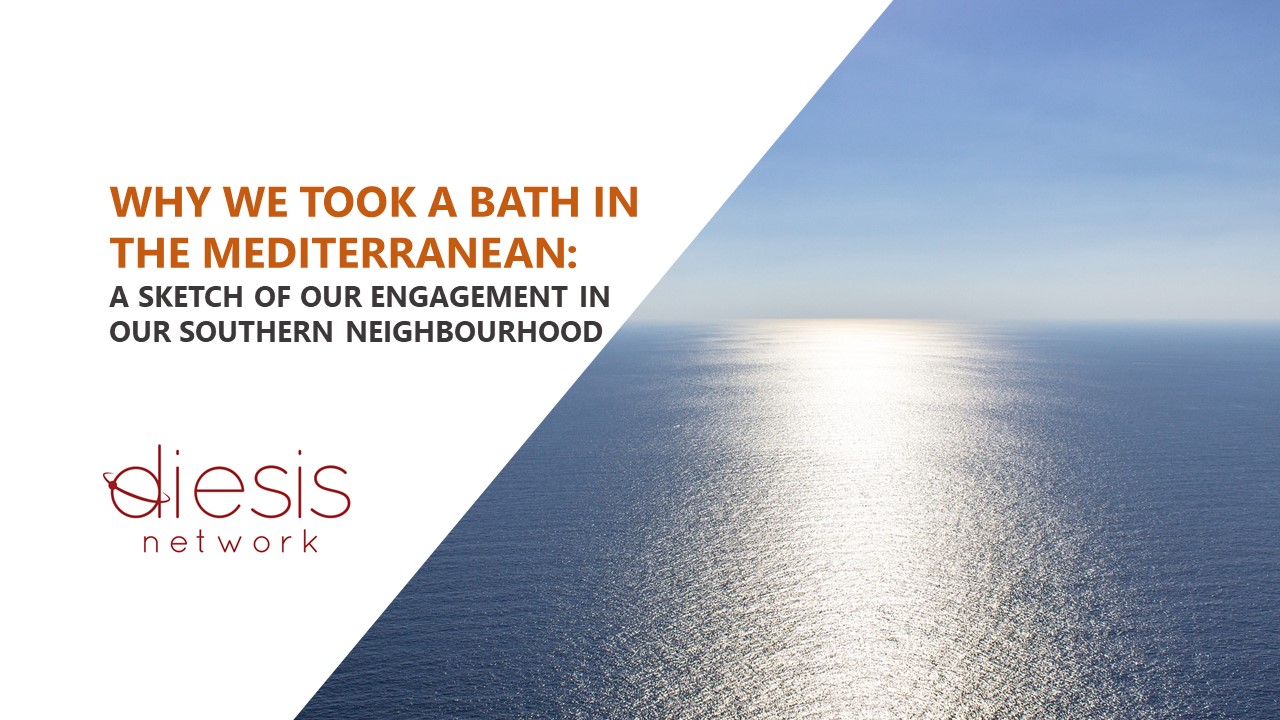A sketch of Diesis Network engagement in our Southern Neighbourhood
Samuel Barco, Senior Expert on International dimension of Social Economy and SE Ecosystems
Since the first appearance of the Italian “Social Enterprise Review” (Rivista Impresa Sociale) back in 1990, prior to the first law on Social Enterprises (the Italian Law on Social Cooperatives from 1991), this concept has steadily gained recognition by practitioners, policymakers and researchers. However, this term is still far from having a fully and widely accepted definition, either a scientific or an operational one.
In the MENA region we are witnessing a growing interest in fostering the development of social economy in order to address the ever-increasing challenges. The nature of such challenges makes it to a certain extent almost impossible to fulfil the expectations from both civil society and political actors. However, and at the same time the relevance and urgency of the threats does not allow too much time to sufficiently signal these elements.
In this context, and given the above-mentioned contested nature, it is even more relevant to support the comprehensive development of the different key components of the local ecosystems. This is probably the main reason for the sustained commitment of Diesis Network in the region in the last few years. The idea that we can provide unique insights and expertise to avoid threats and seize opportunities while fostering a balanced approach to social enterprise development.

Thus, we are currently engaged in three different projects (one regional MEDUP) and two national ones (JOINUP in Jordan and SEE CHANGE in Lebanon). It is worth mentioning that in the case of the latter one we collaborate with one of our members (COSV) which has had a solid presence in the Mediterranean for years. Our role in these projects vary (from partner to service provider), but the common trend is the idea to support -with our decades’ old experience and our network of experts, practitioners and support organisations- the efforts of both international and local actors to address the mentioned challenges. We are also cooperating with some of our allies and partners such as EURICSE, OECD, ILO, ICA, the Mediterranean Network of Social Economy (ESMED), etc., either through our participation in conferences, drafting proposals, bringing them to participate in our activities, etc.
We understand that, besides these problems, we also face the tension between the urgency of developing the different capabilities of the ecosystem to foster the birth and grow of social economy organically, and the request of the times and agendas of key actors, i.e. the need to balance local needs and international constraints.

We also help our partners realize that this often results in research and policy proposals which may neglect a more nuanced and solid theoretical and practical approach needed to better “localize” these new concepts in the national and regional contexts. Or the support in better understanding what lays behind “simple” definitions or the use of common terms such as revenues or profit, which hide a much more complex nature. We also foster the use of examples not only from the “North” but also from the South. Finally, we also try to facilitate networking with our members and also with our allies.
We do so through peer learning activities, research, advice, specialised workshops, knowledge pills, interviews, exchanges, networking activities, drafting of proposals, participation as experts in workshops, supporting the development of local networks, etc.
And we are committed to do so because the challenges we face are impressive, because we believe that our fates are linked with our Mediterranean neighbours and because, as a Social Economy organisation ourselves, our existence is based in cooperating to transform our communities here in Europe but also in other parts of the world.
